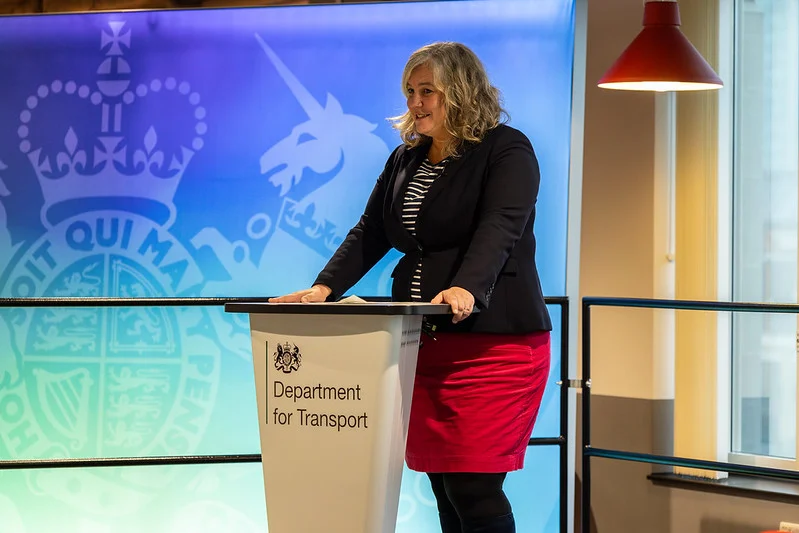The UK government has confirmed it will launch a £650 million grant scheme to discount new EVs for consumers by up to £3,750 per car.
The Electric Car Grant (ECG) will make the discount available at the point of sale for new eligible electric cars priced at or under £37,000.
In a move that transport secretary Heidi Alexander said will “allow people to keep more of their hard-earned money”, drivers will be able to access the discounts from manufacturers that apply to be part of the grant scheme from 16 July.
Funding is available until the 2028/29 financial year and awarded on a first come, first served basis. Alexander added that it will “help our automotive sector seize one of the biggest opportunities of the 21st century”.
Eligibility for the scheme will depend on manufacturers’ sustainability standards. The ‘greenest’ vehicles in band one will receive up to the full £3,750, with band two vehicles eligible for up to £1,500.
The grant administration is carried out between government, dealerships and manufacturers, meaning buyers simply purchase the car at a lower price. The ECG requires manufacturers to have committed to a verified science-based target (SBI).
The government website will be updated over the coming weeks with a list of vehicles approved for the ECG.
Incentivising consumers to buy new EVs is a boost for UK and international manufacturers, particularly as similar subsidy schemes in the US are soon to be scrapped.
Andy Palmer, founder of Palmer Energy Technology, an engineering and technology company focused on emobility and energy storage, explained: “Car pricing is elastic; thus, all means that help achieve price parity with compatible ICE cars will result in mass adoption of EVs.
“It is then incumbent on the car OEMs to use the volume hike to yield cost reduction to ultimately negate the need for incentives; we’ve seen this being done very successfully in China, where price parity is already achieved, and EV market share is already circa 50%.”
Quentin Wilson, founder of campaign group FairCharge, welcomed the “long overdue” support for private EV buyers.
“The independent EV sector has been ploughing a lonely furrow, highlighting the advantages of EV ownership and countering the myriad of misinformation and myths,” he added.
The £650 million investment in EV affordability comes just after the transport secretary, Heidi Alexander, announced a £63 million investment in EV charging infrastructure in the UK.
CEO of chargepoint operator trade body ChargeUK, Vicky Read, pointed out that charging infrastructure is already largely in place to support increased EV uptake as a result of the subsidy.
“With a commitment to invest £6 billion through to 2030, the UK’s charging industry has rolled out infrastructure ahead of demand to ensure that when drivers switch, the network is there to make charging as convenient as possible,” she said.






